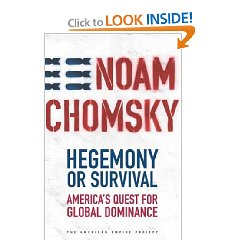This book is a fine summary of the shortfalls in the ideological exercise of power that chooses to disregard reality for forgo bi-partisan compromise.
The author, an award-winning Wall Street journalist, makes three points in his brief introduction: 1) the greatest threat to national security is that of *bad analysis* (not just secret analysis but bad policy analysis); 2) the book is not a kiss and tell memoir as much as an eye-opening warning of what happens when ideology is substituted for policy analysis; and 3) the book is based on nineteen thousand documents–virtually every document the protagonist O'Neil touched–and hundreds of hours of interviews with people who by their very consent to be interviewed were validating O'Neil's account. This book is a classic, and the moderate Republican counter-part to Morton Halperin's similarly revelatory “Bureaucratic Politics & Foreign Affairs.”
Although much has been made of how O'Neil is disparaging of the incumbent president, that is a minor aspect. The heart of this book is about the competition between two forms of governance: the one that is overseen by Dick Cheney, in which ideological assumptions create policy without regard to the facts and in favor of the wealthy few that contribute to the incumbent's political coffers; and the one that was characteristic of wiser Republican presidents, including Nixon, Ford, Reagan and papa Bush, in which a philosophy of governance seeks to find a balanced middle ground based on an interplay of facts and political preferences.
Summing the book up in two sentences: Bush-Cheney are about ideological victory at any cost, making policy in favor of their corporate crony base, without regard to the facts or the merits of any policy. O'Neil, and the winning candidate in 2008, are about a reasoned process for arriving at sound policy in the context of fiscal discipline.
This is an exciting book, and one that every moderate Republican will want to read as they contemplate joining with conservative Southern Democrats like Sam Nunn to create a new Fiscal Conservative Party. An early quote from O'Neil talking to Greenspan sums up the problem: “Our political system needs fixing. It needs to be based on reality. Not games.”
The book rewards anyone who actually reads it word for word with a number of gems.
1) The American economy is actually two economies. One embraces automation and is very productive as a result; the other relies on expert labor and having difficulty making gains.
2) Corporate tax contributions to national revenue have been halved from 1967 to 2000 [not addressed by O'Neil, but as the book “Perfectly Legal” documents, the tax code has become so corrupt that despite the enormous growth of the economy and the enormous profits being made by Halliburton et al, corporations are now escaping virtually all taxes, and this is a big part of why the US Government cannot cover its future obligations and growing debt.]
3) Iraq was the Bush-Cheney regime's top priority from day one. The very first National Security Council meeting was scripted to put Iraq in play, and the Director of Central Intelligence was a full collaborator in this endeavor, coming to the meeting with a variety of images (all subsequently called into question) that purported to make the case for Iraq being a threat requiring action. As O'Neil recollects in the book: “Ten days in, and it was about Iraq.”
4) The unilateralist character of the regime is also addressed. As this review is being written, the Administration is posturing about going after nuclear proliferators, which makes the O'Neil critique of the Rumsfeld approach to proliferation control all the more meaningful: “A traditional counterpoint, that international organizations and a web of economic and cultural interdependencies–as well as protective alliances–could help to control such deadly proliferation, is not mentioned in the six-page memo. The neoconservative view places little faith in such arrangements, or, for that matter, in diplomacy.” There it is again. The Bush Administration is about a big military stick motivated by ideology and not at all informed by any kind of inter-agency policy review process.
5) The book provides a very clear understanding of the pathologies of the Bush White House. The degree to which Rove literally shuts the Cabinet officers out and manipulates policy to appeal to “the base” of cash contributors is quite extraordinary. The degree to which Cheney manipulates letters from the Hill and other matters warrants its own chapter, titled “No Fingerprints.” The degree to which Lindsey, a loosely-educated ideological wonk in way over his head, leaks to the press to undermine the Secretary of the Treasury, is noteworthy.
6) Rove's conspiratorial manipulation of Presidential policymaking led, in Bush's *first* State of the Union message, to the first known instance in which the president “said something that knowledgeable people in the U.S. government knew to be false”, this with respect to a $1.2 trillion calculation that was knowably false and enormously important to the bond market. This was nothing less than a precursor to future false statements by the president that can be attributed to an unprofessional policy process dominated by a few ideologues.
7) There is a very fine section on clean water and reliable electricity as the heart of saving the Third World, and we are treated to the contrast between a beltway bandit costing out a water network for one country at $2 billion, and O'Neil saying it could be done for $25 million. This vignette captured everything that is wrong with both Washington and the military-industrial complex.
This book is packed with gems, all of them useful to anyone seeking to document why Bush and Cheney are unfit to lead America. They broke most if not all of their promises to “the center”, and they are twice removed from reality: once on tax cuts and a second time on the doctrine of preemption in foreign affairs.
See also, with reviews:
Losing America: Confronting a Reckless and Arrogant Presidency
Vice: Dick Cheney and the Hijacking of the American Presidency
American Fascists: The Christian Right and the War On America
American Theocracy: The Peril and Politics of Radical Religion, Oil, and Borrowed Money in the 21stCentury
Running on Empty: How the Democratic and Republican Parties Are Bankrupting Our Future and What Americans Can Do About It
Blood Money: Wasted Billions, Lost Lives, and Corporate Greed in Iraq
Bush's Brain
‘Nuff said. See my lists as well.











